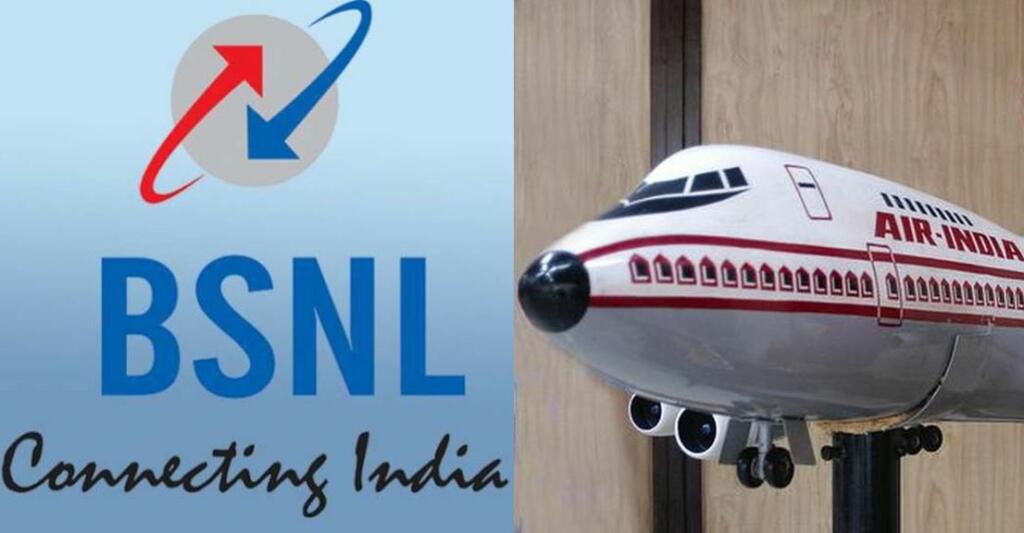- The privatization of Air India is notionally more important than in terms of value because it brought only 2,700 crore rupees to the government in cash. Although the return on the move was very small, it showed the government’s commitment to privatization.
- Now the next big move of the Modi government should be the privatization of BSNL, the government telecommunication service provider.
- The inefficient public sector player gulps billions of dollars of taxpayer’s money every year, just like Air India used to do.
The Modi government has finally materialized one of the biggest tasks of privatization – Air India. The public sector airline returned to its original owner (Air India was started by Tata Group but later nationalized) after many decades. For the last few years, the government was making efforts to privatize the airline that was gulping billions of dollars and taxpayers’ money every year, but every time it faced one or another issue.
So, the privatization of Air India is notionally more important than in terms of value because it brought only 2,700 crore rupees to the government in cash. Although the return on the move was very small, it showed the government’s commitment to privatization.
Now the next big move of the Modi government should be the privatization of BSNL, the government telecommunication service provider that tested 4G service a few days ago when the operators around the world as well as in India are moving towards 5G.
The public sector company posts losses worth billions of dollars every year. In FY 19-20, the company posted a loss of 15,499.58 crore rupees and in FY 20-21 of 7,441 crore rupees. The revenue from operations of the company declined by 1.6 per cent to Rs 18,595.12 crore in 2020-21 compared to Rs 18,906.56 crore it reported in 2019-20.
BSNL’s net worth has come down to Rs 51,686.8 crore during FY2021 from Rs 59,139.82 crore in the previous year. The outstanding debt of the company increased to Rs 27,033.6 crore in FY2020-21 from Rs 21,674.74 crore in FY2019-20.
In 2019, a report by Kotak Institutional Securities said that the accumulated debt of the company is more than 90,000 crore rupees. “BSNL’s financial position has been deteriorating for a long time, in that, the company in the past 14 years has moved from `navratna’ status to being declared an incipient sick PSU,” the brokerage said in a note.
The inefficient public sector player gulps billions of dollars of taxpayer’s money every year, just like Air India used to do. The company has such a huge debt that every year it pays more than a billion dollars in interest payment while its total revenue is a little less than two billion dollars.
Had it been a private player, the majority of its revenue would have gone for debt servicing and with no money for operational expenditure, it would have closed a long time ago. But, given the fact it has access to the coffers of the richest and most powerful authority in the country (Government of India), it stays afloat.
The management at BSNL argues that it is now a stable organization apart from interest payments. “Today, BSNL is an operationally stable organisation, and on the right path. The challenge is only interest outgo on debt which comes to the tune of Rs 200 crore to Rs 1,000 every month,” said Pravin K Purwar, chairman.
Given the fact it has become an operationally stable organization, the Modi government should private it as soon as possible. BSNL, combined with MTNL, is a large entity and it still has a customer base of more than 10 crore. The privatization of BSNL would bring a strong fourth private player (Jio, Airtel, and VI being the other three) in the telecommunications space and strengthen the competition in the sector which is heading for the duopoly.
